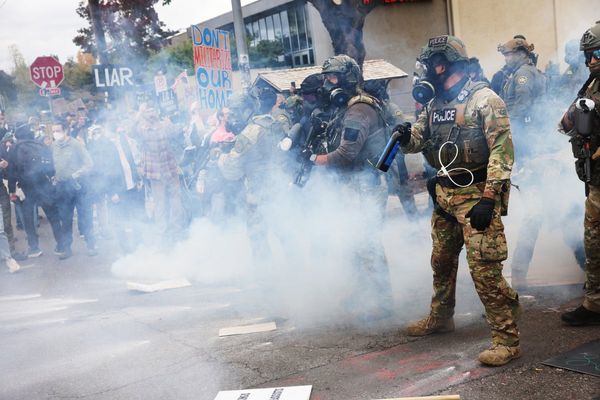
Steel trade unions have said it is “absolutely vital” that the UK rapidly secures a deal to protect the sector from Donald Trump’s tariffs, after the industry was excluded from an initial UK-US pact signed on Monday night.
Keir Starmer and Trump signed off a UK-US trade deal at the G7 summit in Canada, with the US president saying Britain would have protection against future tariffs “because I like them”.
The car industry was relieved that tariffs on the sector will be reduced to 10% from 27.5%. The UK aerospace sector will face no tariffs at all from the US after deal, which followed an initial agreement made in May.
However, the announcement of the deal did not include the removal of tariffs on steel imports. UK steelmakers still face 25% tariffs, although this is lower than the global tariff of 50% imposed by the Trump administration on other nations.
The UK business department said the two leaders had pledged to “make progress towards 0% tariffs on core steel products as agreed”.
Alasdair McDiarmid, the assistant general secretary of the steel union Community, welcomed the progress that has been made on reaching a deal on steel.
“However, it’s now absolutely vital that a deal for steel is secured as soon as possible,” he said. “Our steel producers and their US customers need an end to the current state of uncertainty to allow normal business to resume.
“Crucially, we must see a full exemption for all UK steel exports to the US – without that guarantee some of our leading steel businesses could be left behind, with a threat to jobs and livelihoods.”
A steel industry source said the automotive deal had been widely expected to be completed before steel and aluminium. However, the person said “we now need steel to happen pretty quickly” to avoid the risk of 50% tariffs kicking in on 9 July, under the terms of the UK’s temporary exemption.
Gareth Stace, the director general of the trade body UK Steel, said: “We look forward to imminently benefiting from a tariff rate cut similar to that which the automotive and aerospace industries will enjoy in seven days. The UK steel industry badly needs clarification over the ‘melted and poured’ requirement, and the level of quotas available to UK steelmakers so that we can restore the historical trade routes that have served both the UK and the US economies for many years.”
Ministers have been working to ensure the UK’s biggest steelmaker, Tata Steel, is included in tariff-free access to the US. Its bosses fear the deal could end up excluding Indian-owned Tata Steel, which runs the vast Port Talbot steelworks in south Wales, because of the origin of some of its products. The company exports more than $100m (£74m) worth of goods to the US every year.
The Chinese ownership of British Steel, which is under government control, could be a sticking point in a deal for the industry as the executive order signed by Trump suggests the US wants assurances that the metal originates in the UK.
“The UK also committed to working to meet American requirements on the security of the supply chains of steel and aluminium products intended for export to the US and on the nature of ownership of relevant production facilities,” the order states.
Separately, British Steel has secured a new five-year supply contract with Network Rail worth more than £500m, under which British Steel will supply between 70,000 and 80,000 tonnes of rail a year. McDiarmid welcomed the extension but expressed concern that “British Steel’s share of the Network Rail contract is set to reduce significantly”.
Mike Hawes, the chief executive of the Society of Motor Manufacturers and Traders, told BBC Radio 4’s Today programme he hoped the new 10% tariff rate for UK carmakers would start “in the next few days”.
The UK-US trade pact had been negotiated in early May, “but we’ve been waiting for it to be implemented so manufacturers can start shipping without being subject to those punitive tariffs”, he said.
He added that “a lot less” had been exported to the US in the meantime, and some UK manufacturers had halted shipments. The British luxury carmakers Jaguar Land Rover and Bentley are among those that paused shipments.
“They’ve been pausing because their customers – we’ve got shrewd customers – were going to wait and see what was going to happen,” Hawes said. “You could see that the cost to the ultimate consumer was going to come down because of the reduction in the tariff, but you just didn’t know when.”







